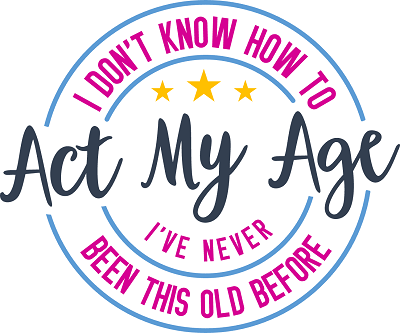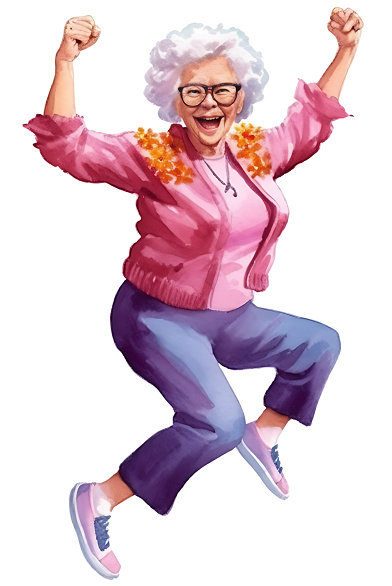 By now, it’s stereotypical: a woman goes to the bathroom upon waking up, looks at herself in the mirror and screams upon discovering a grey strand of hair. The male middle-age crisis is culturally linked with having an affair, keeping a mistress, and buying a red sports car.
By now, it’s stereotypical: a woman goes to the bathroom upon waking up, looks at herself in the mirror and screams upon discovering a grey strand of hair. The male middle-age crisis is culturally linked with having an affair, keeping a mistress, and buying a red sports car.
Popular psychology tells us that all these are manifestations of the fear of aging.
Why are We Afraid to Grow Old, Anyway?
It is not often the idea of growing old that we fear, but, the idea associated with growing old: being sick, frail, immobile and unable to be financially independent. Often, we fear the isolation and loneliness of growing old. More often, we associate aging with death.
Our society is obsessed with beauty and strength and fitness and health and aging is antithetical to all these: when we age, we lose the looks we had when we were young. We lose the toned muscles that we had – we lose our agility and our balance. Media bombards us with the idea that if we are not young and beautiful, then we don’t really count – these ideas have impacted our view of aging.
More importantly, we have grown up without elders – few of us experience having an extended family living in one area or even under one roof.
We do not have memories of a grandfather or a grandmother telling us bedtime stories and stories of when they were young and how they used to play. We no longer hear stories of how they triumphed over poverty and adversity, how they survived during the war years and their struggle to keep body and soul together. Thus, we do not have any models for aging gracefully and graciously.
Growing old is a testament of a person’s resilience, stamina, endurance, tenacity and survival – growing old is a badge of courage.
Unfortunately, we no longer see or have relationships with older people — we often just put them in a nursing home and forget about them. We fail to see that their lives are often roadmaps for survival.
What We Can Do to Overcome Our Fear of Aging
1. Admit that you are afraid of growing old. Admitting one’s fear to oneself often brings us to a point where we can do something about it. If we sweep our fears under the rugs of our minds, it festers.
2. Ask yourself (even make a list) of what it is exactly you are afraid of about aging. Are you afraid of a family trait or a family predisposition to disease? Did your grandparents or parents have Alzheimer’s disease? Did they have a predisposition to stroke or cardiovascular disease?
3. Learn about your fears. If it is a disease, then read up on it and consult your doctor about it. Get yourself tested. And if there are medically proven strategies to prevent or delay the symptoms, it would be good for you to make those strategies a part of your daily life. If it involves a lifestyle change, then change your lifestyle.
4. Break down the problem of aging into small bits so that you can better process them and so that you can better be able to strategize how best to prepare for them. Preparation is key.
5. Save up money. Invest in health and life insurance for yourself. Make a will and designate a proxy who will decide on your healthcare in case you succumb to disease. Simplify and organize your affairs.
6. Maintain and work on relationships with people who mean a lot to you. Keep in touch with the younger people in your family and in your community. Sometimes, fear of aging is a matter of perspective. If you are good in math, why don’t you find kids in your area who are struggling with math and help them with their homework? If you play a musical instrument, why don’t you teach the younger people? Start with your grandkids, or with your neighbor’s kids. Instead of them being stuck in the house just watching TV, teach them how to bake cookies, tell stories to them, listen to their stories.
7. Retire from work, but, do not retire from life. Learn something new every day. If you’ve always wanted to learn how to play chess or use the computer, then go to the community center and enroll in a class. Go to the local community college and enrol in a course. Learn something new. Read, write and document your life. Set up a blog and write about your experiences. Make your own history and make it a story of your struggle and eventual triumph.
8. Think of aging and even death as rites of passage just as entering kindergarten, graduating from high school, getting into college, graduating from college and getting a job. Celebrate milestones.
9. If you wonder if there is life after aging and life after death, well, then, you must start taking your spiritual life seriously. Search for spiritual truth. Ask yourself the hard questions and seek to find answers to them. Read the Holy Scriptures and see if you can find eternal life. Only remember that eternal life is not meant to be lived here on Earth – it is to be lived after this earthly life (all religions teach that). If you do not believe in any religion, think of yourself as crumbling into the dust of the earth that will nourish the crops for tomorrow’s generation.
Choose Your Battles
You will not find an elixir of life that will keep you from aging. You will not find a fountain of youth that will melt away the years. There is no miracle cure or wonder drug that will keep you young. It doesn’t exist. Every living thing will eventually age and die. From the moment we were conceived, our bodies were in the process of aging.
Since aging is inevitable, what you can choose is how you age – you can choose to mature as you age.
You can take responsibility for how you age. You can eat healthful foods that will help keep you strong and better able to defend yourself against the onslaught of infection and injury.
You cannot prevent loss of muscle and bone density, loss of visual and auditory acuity that are all associated with advanced aging – but you can make sure that you do not abuse your body or your mind so that you can age with as much grace as can be had. Joy is not for the young only – it is for everyone who knows how to see the good in life.


